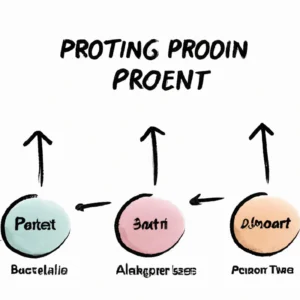Awaken Your Brain: Meditation’s Surprising Power
The Impact of Meditation on Neuroplasticity: Transforming Your Brain Through Mindfulness
Meditation has become popular as many seek peace, reduce stress, and enhance focus. Research shows meditation profoundly affects neuroplasticity, the brain’s ability to form new neural connections. Embracing mindfulness can transform your brain and improve cognitive abilities, leading to a more fulfilling life.
Understanding Neuroplasticity
Neuroplasticity allows the brain to adapt and change based on experience, learning, and injury. This adaptability occurs at cellular levels and through large-scale cortical remapping. Neuroplasticity is essential for learning new skills, recovering from injuries, and adjusting to new environments.
The brain continually changes, creating new pathways as we learn and adapt. This dynamic nature means the brain responds to its environment. Meditation serves as a tool to harness the brain’s ability to change and grow.
How Meditation Influences Neuroplasticity
Enhancing Brain Connectivity
Meditation enhances brain connectivity, enabling different regions to communicate effectively. This connectivity improves focus, emotion regulation, and self-awareness. Long-term meditation practitioners show increased connectivity between the prefrontal cortex and other brain regions. This connectivity supports attention, self-regulation, and emotional processing.
Studies using functional MRI scans reveal that meditation increases activation in the anterior cingulate cortex and the insula. These regions are crucial for self-awareness and emotional regulation. Regular meditators often manage emotions better and make more thoughtful decisions.
Promoting Emotional Regulation
Regular meditation significantly improves emotional regulation. Mindfulness helps you observe thoughts and feelings without judgment. This practice buffers stress and fosters resilience during challenges. Instead of reacting impulsively, you learn to respond more thoughtfully to negativity.
Research shows mindfulness meditation changes the amygdala, which processes fear and anxiety. These changes reduce reactivity to stressors, leading to healthier emotional responses. Consequently, regular meditators often experience greater calm and well-being, even amid adversity.
Encouraging Behavioral Change
Meditation serves as a powerful tool for breaking negative habits and fostering growth. Developing mindfulness increases your awareness of thoughts and actions. This self-awareness enables you to recognize and change unhelpful behaviors.
Conclusion
In summary, meditation enhances neuroplasticity, improves emotional regulation, and encourages positive behavioral changes. Embrace mindfulness for a more fulfilling life.
Below are related products based on this post:
FAQ
What is neuroplasticity, and why is it important?
Neuroplasticity is the brain’s ability to adapt and change based on experiences, learning, and even injury. It allows the brain to form new neural connections and is essential for acquiring new skills, recovering from injuries, and adjusting to new environments. This adaptability is crucial for personal growth and cognitive development.
How does meditation enhance brain connectivity?
Meditation enhances brain connectivity by enabling different regions of the brain to communicate more effectively. Long-term meditation practitioners show increased connectivity between the prefrontal cortex and other areas, which supports improved attention, self-regulation, and emotional processing. Functional MRI studies indicate that meditation activates regions like the anterior cingulate cortex and insula, crucial for self-awareness and emotional regulation.
Can meditation help with emotional regulation?
Yes, regular meditation significantly improves emotional regulation. By practicing mindfulness, individuals learn to observe their thoughts and feelings without judgment, which helps buffer stress and build resilience. Research indicates that mindfulness meditation can alter the amygdala’s response to fear and anxiety, leading to healthier emotional reactions and greater calm even during challenging times.















Post Comment